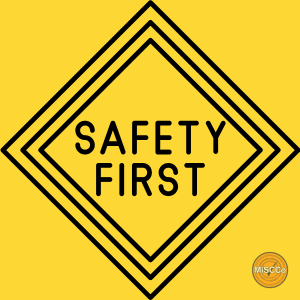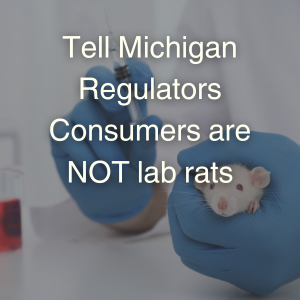In 2018, 2 major events happened in our cannabis marketplace. The first is Michigan legalized adult-use marijuana. This allows for consumers over 21 to possess and purchase marijuana products which are monitored in a state-wide seed to sale system to ensure consumer safety.
The other major event was the 2018 Farm Bill was signed to include federal legalization of hemp products. These products must contain less than 0.3% THC. This law unknowingly opened up loopholes and gray areas around synthetic and intoxicating compounds without proper due diligence for new product creation. This leads the consumer to be the Guinea pig for new products without understanding short and long-term side effects without informed consent of what customers are consuming.
We believe in increased transparency around where consumer products come from. We believe in working within the seed to sale tracking system and not improperly manipulating data to import synthetic oil to serve to consumers.
Lastly, we believe in doing more than the minimum when it comes to product testing. We have scientific methods that identify the various acidic compounds used to manufacture synthetic THC, but the law doesn’t require companies to test for it, recall it, or label that it’s synthetic.

Products converted from hemp may contain harmful residual chemicals, impurities, or inconsistent potency, increasing the risk of adverse reactions for consumers. Though additional research needs to be conducted to determine the level of risk these byproducts pose, it’s important for retailers and consumers alike to be aware of the potential for health risks.

Some companies are making the cheapest product to compete for spend. Our retail partners are committed to requiring more than minimum testing to show whether a product has been created from regulated marijuana or if it is synthetically created by testing for corrosive acids that are used in the conversion process but not entirely removed during the manufacturing process.

The influx of synthetic THC products can lead to confusion among consumers. Today, the differences between regulated cannabis and unregulated hemp derivatives are indistinguishable, damaging trust in the cannabis market as a whole. If synthetic cannabinoids are allowed, why not be transparent and label as such? We have the technology to know, but is not required.
Currently, laws do not require testing for synthetic THC. MiSCCo members are required to test for synthetic THC, and retailers are required to provide testing reports when requested. Learn what to ask for and how to read the report to ensure product transparency.
The industry and media have been concerned for over 2 years without meaningful progress. MiSCCo exists to help hold the industry accountable
The Michigan for Safe Cannabis Coalition (MiSCCo) is at the forefront of advocacy efforts to eliminate the sale of unregulated hemp-derived THC in Michigan. We are working closely with legal cannabis operators throughout the state to bring attention to the risks posed by these unregulated products and pushing for stricter enforcement and clearer guidelines.
MISCCO has been in close communication with Michigan’s Cannabis Regulatory Agency (CRA) regarding its efforts. The CRA has taken steps to address the issue by halting plans to allow hemp conversion to THC and continuing to evaluate the safety risks associated with these products.